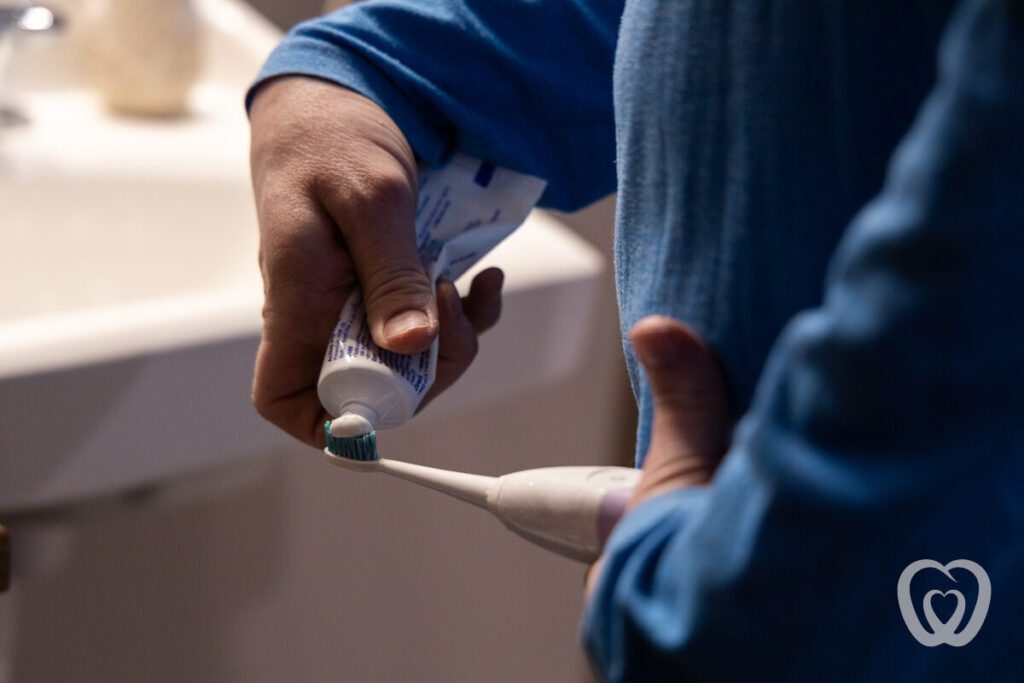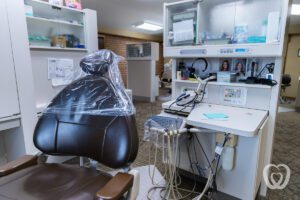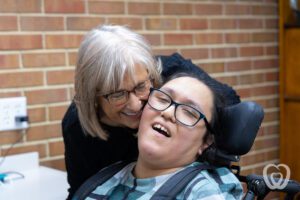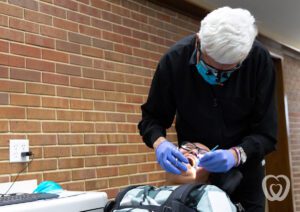As part of the Pathways to Oral Health initiative, Oral Health Kansas has released a new caregiver training video and a training guide designed for both family caregivers and direct support workers who assist people with disabilities in daily oral health routines. This longer, in-depth resource builds on the Confidence in Every Smile video series, offering practical guidance and demonstrations for those who provide hands-on care in homes and residential care settings.
The training highlights adaptive brushing and flossing techniques, introduces helpful tools for individuals with limited mobility, and provides strategies to make oral care safer, more comfortable, and more effective. By pairing step-by-step demonstrations with clear explanations, the video serves as both an educational and empowering resource for anyone supporting someone with a disability.
To reinforce these lessons, Oral Health Kansas has also developed a training guide and three supplemental materials designed to help trainers use the Pathways to Oral Health instructional video. These resources outline learning objectives, a comprehensive training agenda, handouts, and optional activities to provide a consistent message for residential caregiver staff.
This project was led by Kathy Hunt, RDH, ECPII, Program Director at Oral Health Kansas, whose commitment to improving oral health equity for people with disabilities has guided much of the Pathways work. Through conversations with both family members and professional caregivers, Kathy heard a consistent message: oral hygiene can be one of the most challenging daily care tasks. Caregivers want to provide good care but often lack training in adaptive techniques or access to visual, easy-to-follow guidance. This video was created to fill that gap—helping caregivers feel more confident and supported in their vital role.
Why Caregiver Training Matters
Caregivers—whether they are parents, family members, or professional support staff—play a central role in maintaining the health and quality of life of people with disabilities. Yet oral health care can be overlooked or rushed because of time constraints, behavioral challenges, or a lack of accessible training. This video helps bridge that gap by providing:
- Practical demonstrations of brushing and flossing for individuals with disabilities.
- Adaptive strategies to accommodate physical or behavioral challenges.
- Tips for creating a calm, safe, and comfortable oral care routine for both caregivers and individuals receiving care.
Recognizing Early Warning Signs: Behavior Speaks
In addition to the training video, Oral Health Kansas has developed a new flyer, Behavior Speaks, to help caregivers recognize early signs of dental pain or discomfort in individuals who may not be able to communicate it verbally.
Changes in behavior—such as increased irritability, refusal to eat, touching the face, or changes in sleep patterns—can often signal that something is wrong. The Behavior Speaks flyer serves as a quick reference for identifying these signs early, prompting timely dental care and preventing more serious issues.
This resource compliments the caregiver training video by helping caregivers not only perform daily oral care but also detect when professional attention may be needed.
Looking Ahead
The training video is intended to serve as an ongoing resource for families, residential staff, and organizations that support people with disabilities. By improving caregiver confidence and consistency, it supports better daily oral health and, ultimately, enhances comfort, dignity, and overall well-being.
Access the Training
The caregiver training video is now available on the Pathways to Oral Health website and YouTube. Family caregivers, residential care home staff, and direct support professionals are encouraged to watch and share it as part of their ongoing commitment to high-quality care. To reinforce learning, there are also a free Training Guide and three supplemental handouts available on the Pathways to Oral Health website.
Watch the caregiver training video at pathwaystooralhealth.org.




